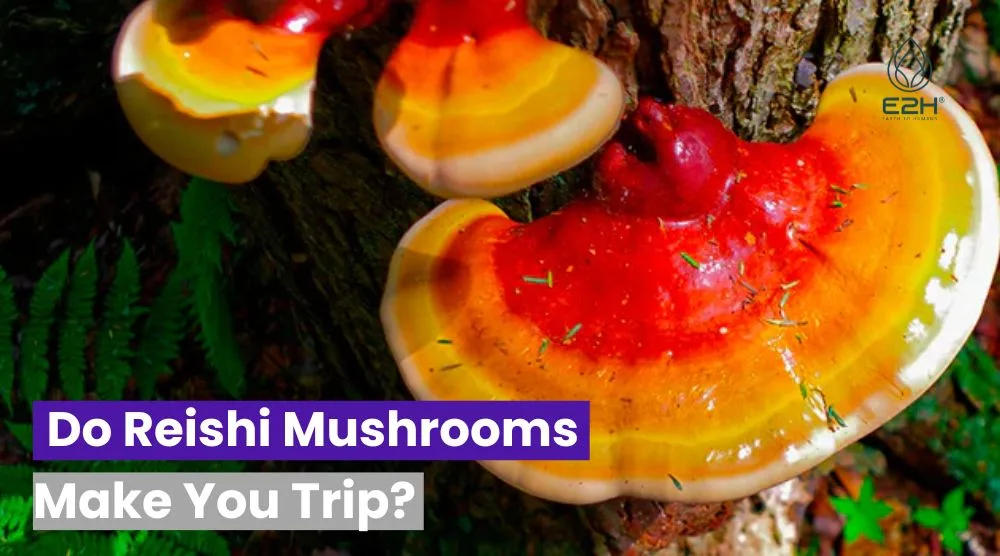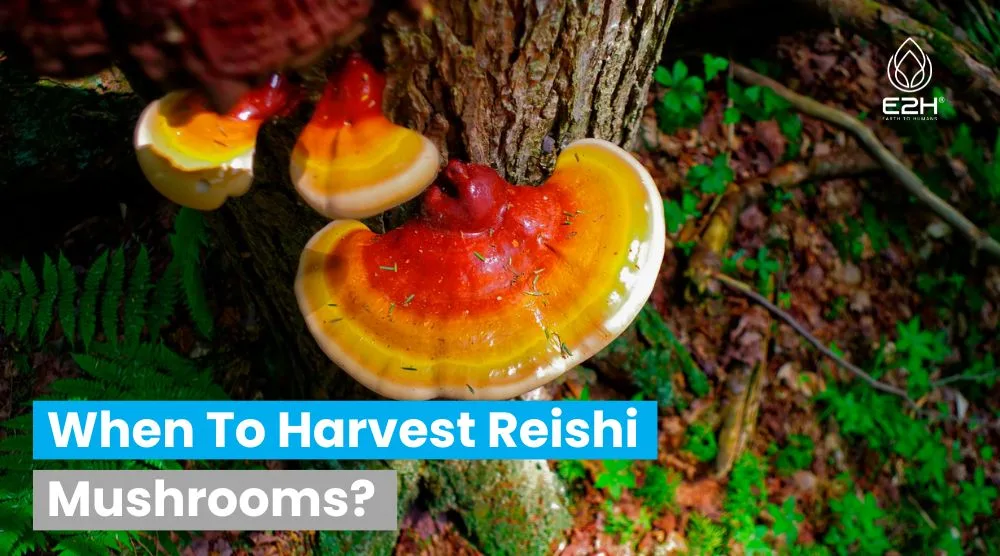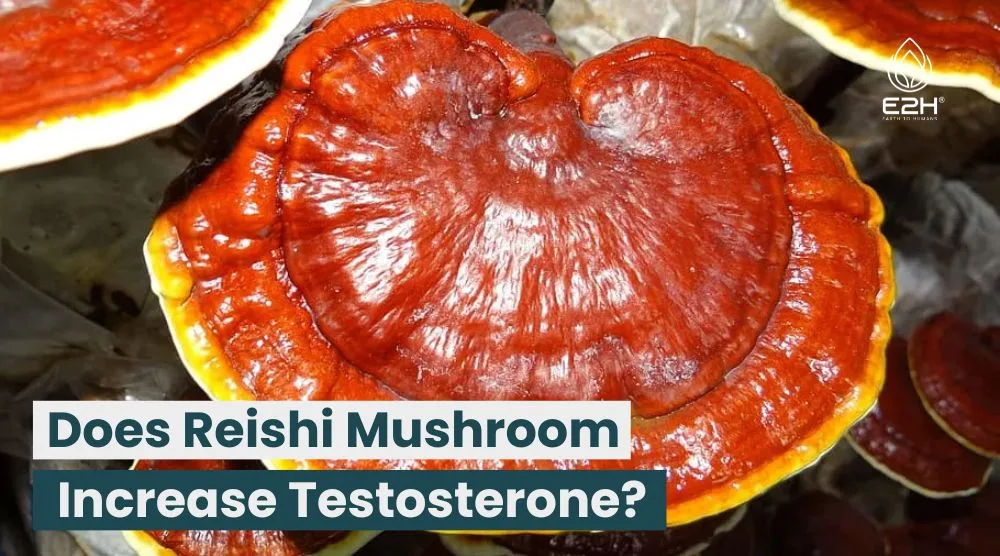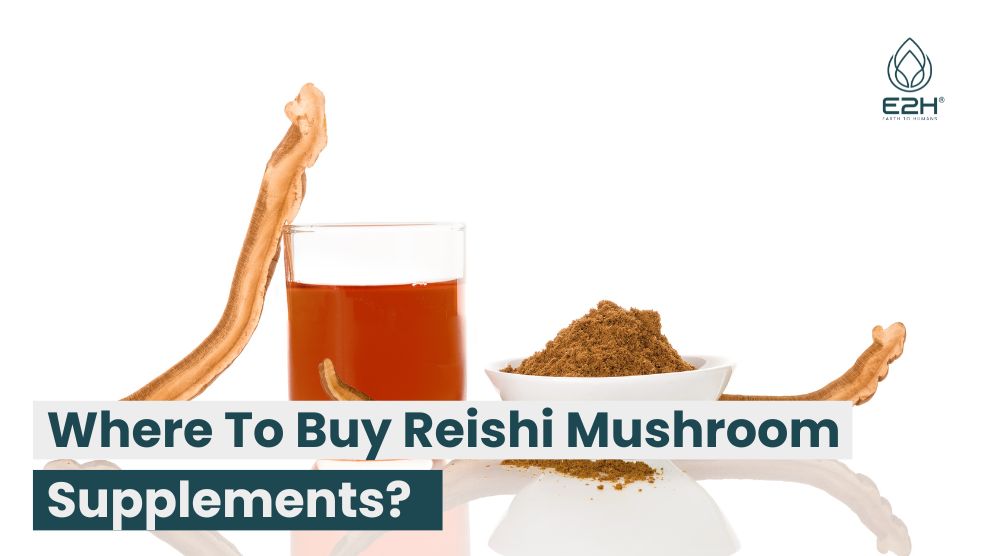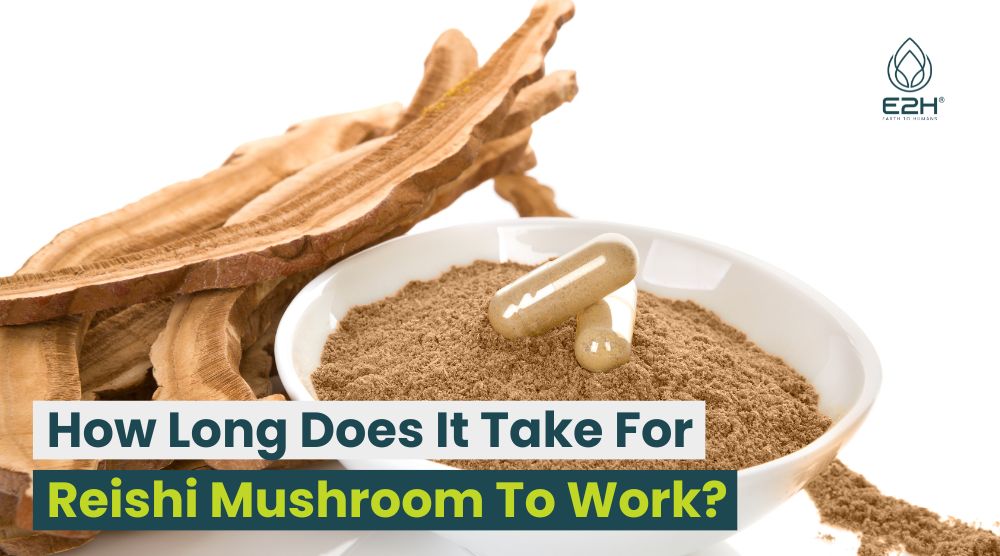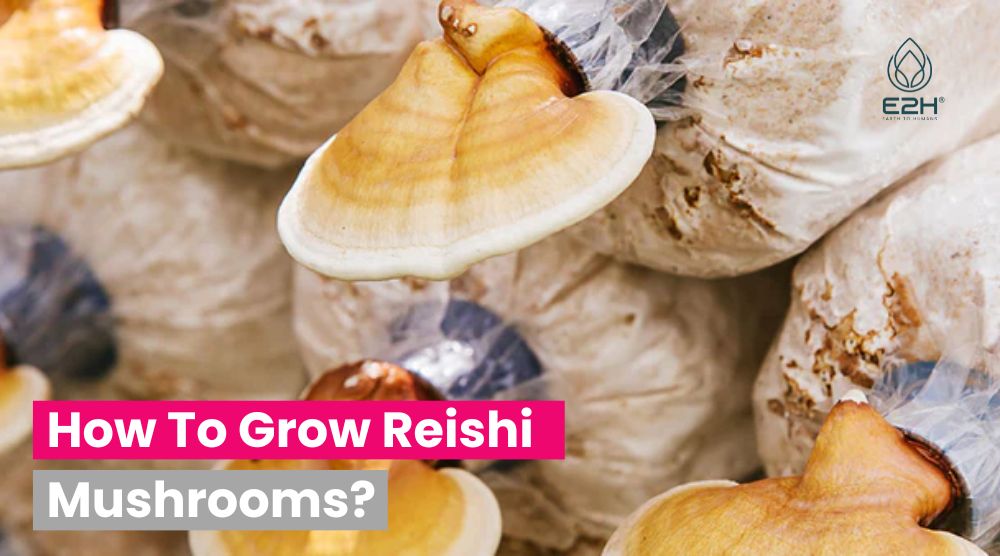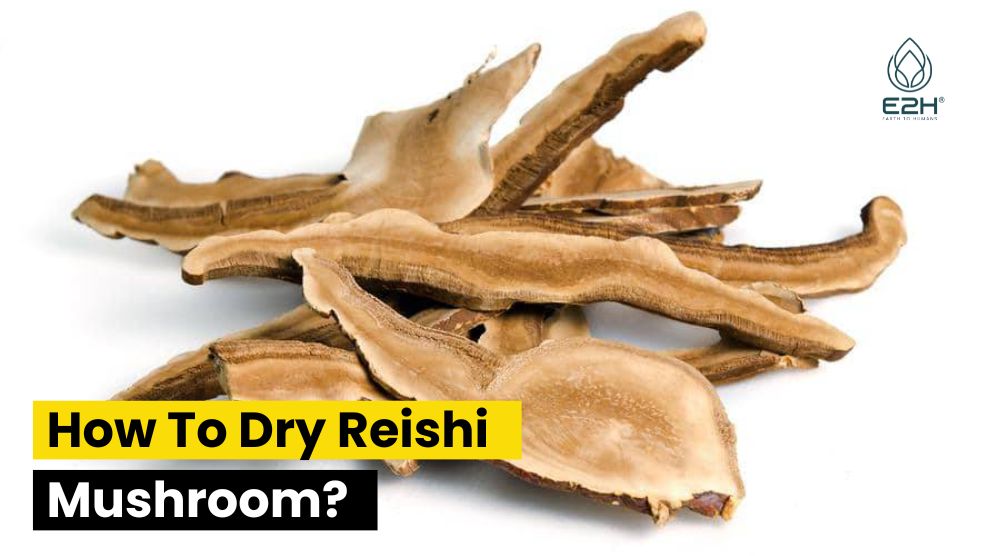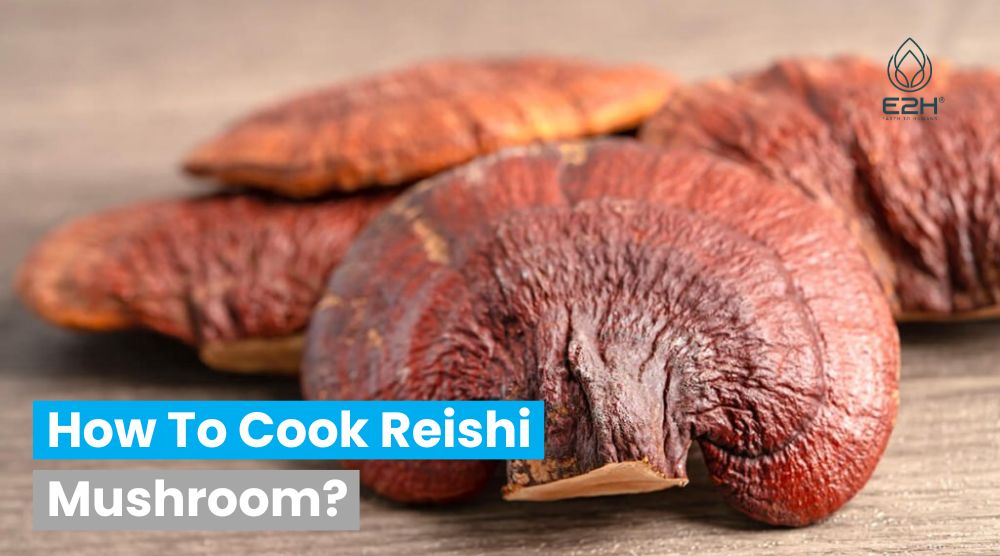Do Reishi Mushrooms Make You Trip: No, Reishi mushrooms do not make you trip. They are not psychedelic. However, Reishi is valued for potential health benefits.
To understand more about Reishi and its positive effects, let’s explore its properties and uses in a way that’s easy to grasp for a better understanding.
Do Reishi Mushrooms Make You Trip: Explained
Reishi does not induce a “trip” or altered state of consciousness.
- Chemical Composition: Reishi mushrooms contain triterpenoids, polysaccharides, and other bioactive compounds. These components contribute to its health-promoting effects, such as boosting the immune system and reducing inflammation.
- Traditional Medicine: In traditional Chinese medicine, Reishi is considered an adaptogen, helping the body adapt to stress and restore balance. It has been historically used to promote longevity and overall well-being.
- No Hallucinogenic Properties: Unlike psychedelic mushrooms, Reishi does not contain psilocybin or psilocin, the compounds responsible for hallucinations. Therefore, consuming Reishi does not lead to a psychedelic experience.
- Potential Health Benefits: Research suggests that Reishi may have various health benefits, including antioxidant properties, immune system support, and potential anti-cancer effects. However, more studies are needed to fully understand its therapeutic potential.
- Cautions and Considerations: While Reishi is generally considered safe for most people, individuals on medication or with specific health conditions should consult a healthcare professional before incorporating it into their routine. It’s crucial to source Reishi from reputable sources to ensure purity and quality.
What Is The Active Ingredient In Reishi?
The active ingredients in Reishi mushrooms are a complex combination of bioactive compounds, with triterpenoids and polysaccharides standing out as key contributors to its medicinal properties.
- Triterpenoids: Reishi is rich in triterpenoids, which have been linked to various health benefits. These compounds exhibit anti-inflammatory, antioxidant, and immune-modulating effects, contributing to the mushroom’s therapeutic potential.
- Polysaccharides: Polysaccharides, another crucial component, play a role in immune system modulation. They are believed to enhance the activity of certain immune cells, supporting the body’s defense mechanisms.
How Do Reishi Mushrooms Differ From Psychedelic Mushrooms?
| Characteristic | Reishi Mushrooms | Psychedelic Mushrooms |
|---|---|---|
| Scientific Name | Ganoderma lucidum | Various, e.g., Psilocybe cubensis, Amanita muscaria |
| Common Names | Reishi, Lingzhi | Magic mushrooms, Shrooms |
| Appearance | Varied colors, typically reddish-brown with a shiny cap | Diverse colors, shapes, and sizes with a distinctive cap often featuring psychedelic patterns |
| Habitat | Typically found on hardwood trees, especially in Asia | Found in a variety of environments, often growing on decaying organic matter |
| Active Compounds | Triterpenoids, polysaccharides, beta-glucans | Psilocybin, psilocin, baeocystin, other tryptamines |
| Psychoactive Properties | Non-psychoactive; known for immune system support and adaptogenic effects | Psychoactive; induce altered states of consciousness, hallucinations, and altered perceptions |
| Medical Use | Adaptogen with potential health benefits for immune support, anti-inflammatory effects, and stress reduction | Limited medical use; ongoing research for mental health conditions like depression, anxiety, and PTSD |
| Legal Status | Generally legal and widely used in traditional medicine | Controlled or prohibited in many countries due to psychoactive properties |
| Cultural and Traditional Use | Long history of use in traditional Chinese medicine for promoting longevity and vitality | Used in various cultural and religious practices for spiritual or shamanic purposes |
| Side Effects | Generally considered safe; may cause mild side effects such as upset stomach | Can cause hallucinations, altered perception of time, nausea, anxiety, and other psychological effects |
| Purpose of Use | Generally used for overall health and well-being, not for recreational or psychedelic experiences | Used recreationally, ceremonially, or therapeutically for psychedelic experiences and altered consciousness |
Is There A Potential For A Psychedelic Experience With Reishi Mushrooms?
Reishi mushrooms do not possess the potential for a psychedelic experience. Unlike psychedelic mushrooms containing compounds like psilocybin and psilocin, Reishi lacks these psychoactive substances.
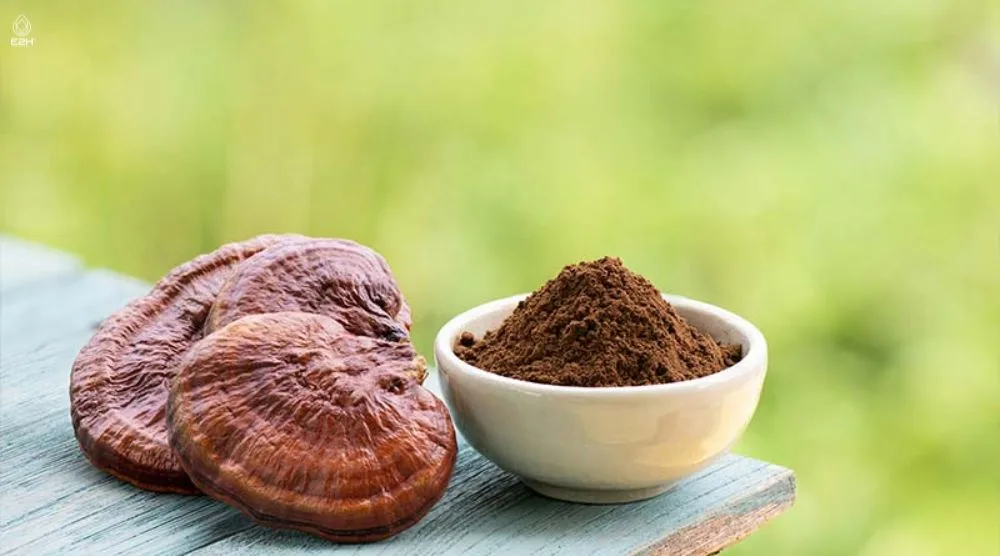
The active components in Reishi, such as triterpenoids and polysaccharides, focus on supporting overall health and well-being without inducing hallucinations. Scientific evidence and traditional use affirm Reishi’s safety and non-psychoactive nature.
Individuals seeking a full psychedelic mushroom experience should look to specific varieties like Psilocybe mushrooms, emphasizing the importance of accurate identification and responsible use due to legal and mental health, considerations.
Are There Any Mind-altering Effects Associated With Reishi Mushrooms?
Reishi mushrooms are not known for mind-altering effects. Unlike psychedelic substances, Reishi lacks psychoactive compounds such as psilocybin or psilocin. The triterpenoids and polysaccharides present in Reishi primarily contribute to its potential health benefits, focusing on immune system support and anti-inflammatory properties.
Scientific studies and traditional use support the safety and absence of mind-altering effects associated with Reishi consumption. Individuals seeking cognitive enhancement or altered states should explore alternative substances, as Reishi is renowned for its holistic health-promoting qualities rather than inducing changes in perception or consciousness.
What Does Reishi Do For The Body?
Reishi mushrooms offer a spectrum of health benefits. They enhance the immune system through polysaccharides, potentially reducing the risk of infections. The triterpenoids in Reishi exhibit anti-inflammatory properties, supporting overall well-being. Studies suggest its antioxidant effects, aiding in cell protection.
Reishi may contribute to cardiovascular health by promoting blood circulation and reducing high blood pressure. Additionally, it shows potential anti-cancer properties, inhibiting the growth of certain tumor cells. As an adaptogen, Reishi helps the body adapt to stress, promoting balance and resilience.
Can Reishi Mushroom Make You Dizzy?
Reishi mushrooms are generally well-tolerated, and dizziness is an uncommon side effect. However, individual reactions vary. Some may experience mild symptoms like dizziness or digestive issues.
It’s crucial to start with a low dosage and observe how your body responds. If dizziness persists, consult a healthcare professional. Factors like medication interactions, pre-existing conditions, or allergic reactions can contribute.
While rare, it’s advisable to exercise caution and prioritize personalized health considerations when incorporating Reishi or any supplement into your routine.
What Happens If You Take Too Much Reishi Mushroom?
While Reishi mushrooms are generally safe, excessive intake may lead to side effects. Overconsumption might result in digestive issues like upset stomach or diarrhea. Some individuals may experience allergic reactions. Rarely, liver toxicity has been reported in isolated cases.
It’s crucial to adhere to recommended dosages, usually around 1 to 1.5 grams daily. Consultation with a healthcare professional is advisable, especially for those with pre-existing conditions or taking medications. Understanding and respecting dosage guidelines ensures that the potential health benefits of taking Reishi, are harnessed without encountering adverse effects.
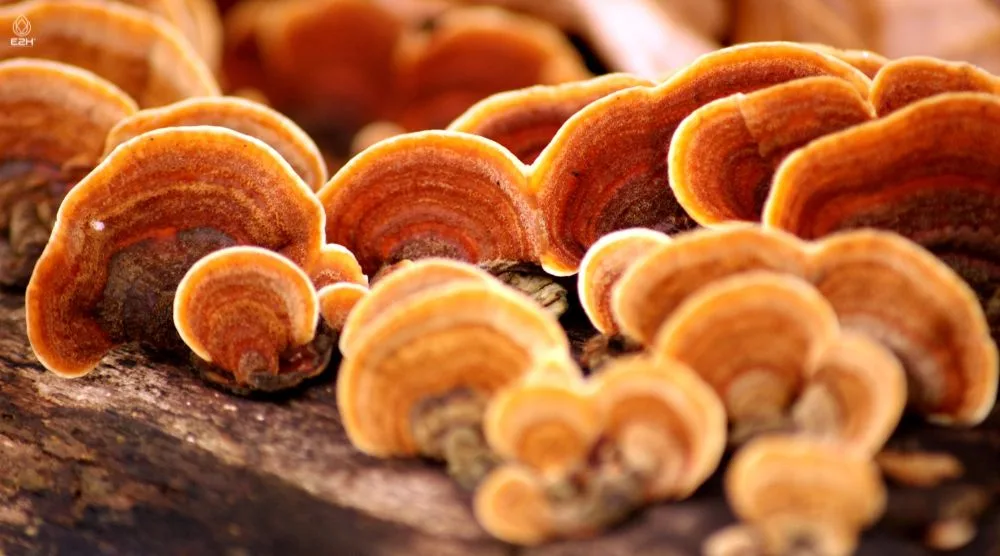
How Does Use Reishi Mushrooms In Traditional Chinese Medicine?
Reishi mushrooms, known as Lingzhi in Traditional Chinese Medicine (TCM), hold a revered status for promoting health and longevity. In TCM, Reishi is classified as an adaptogen, aiding the body in adapting to stressors and restoring balance.
Its use dates back thousands of years, where it was believed to nourish the vital life force, Qi. Reishi was traditionally employed to enhance the immune system, alleviate fatigue, and promote longevity.
TCM practitioners utilized it for various ailments, emphasizing its ability to tonify the body and support overall well-being. Today, modern research aligns with many of clinical aspects of these historical uses, validating Reishi’s role in holistic health practices.
FAQs
Do Reishi mushrooms have psychedelic effects?
No, Reishi mushrooms lack psychedelic compounds, offering health benefits without inducing a trip.
Can Reishi mushrooms cause hallucinations?
No, Reishi mushrooms do not contain hallucinogenic substances, distinguishing them from psychedelic mushrooms.
Are Reishi mushrooms legal and safe for consumption?
Yes, Reishi mushrooms are generally safe when consumed in recommended amounts, with rare adverse effects.
Do Reishi mushrooms interact with medications?
Consult a healthcare professional, as Reishi may interact with certain medications, emphasizing the importance of personalized advice cancer treatment.
Can Reishi mushrooms be taken daily?
Yes, Reishi mushrooms can be incorporated into daily wellness routines for potential health benefits. Start with recommended doses and observe individual responses.
Conclusion
Reishi mushrooms don’t induce trips; they’re celebrated for health benefits. Understanding their non-psychoactive nature is key. Incorporating Reishi into your routine, following recommended guidelines, can enhance overall well-being. Embrace the holistic potential without concerns of hallucinatory effects. As you explore the world of natural remedies, Reishi stands as a reassuring choice for vitality. Stay curious, prioritize wellness, and enjoy the journey towards a healthier, balanced life with Reishi mushrooms.
